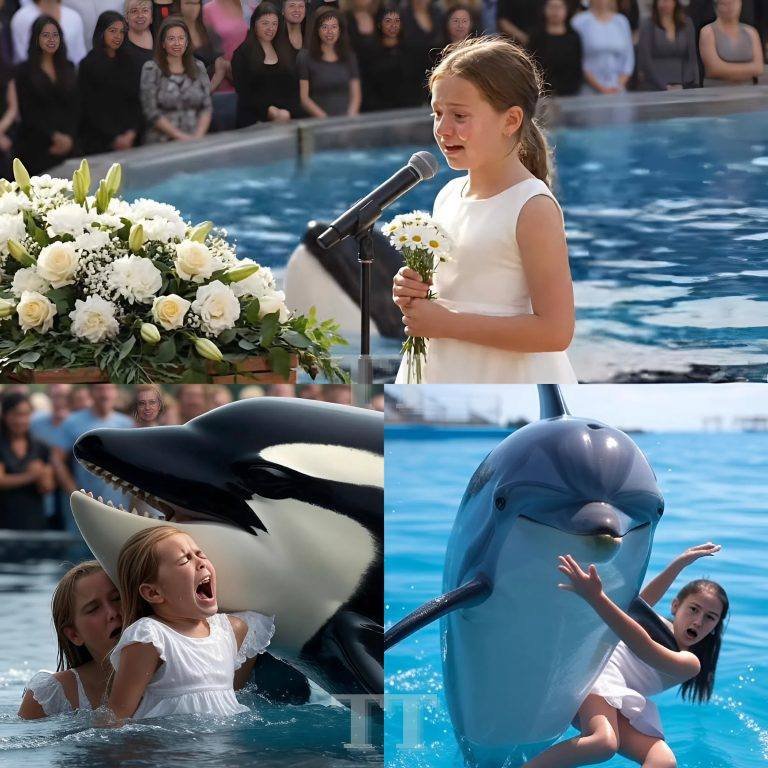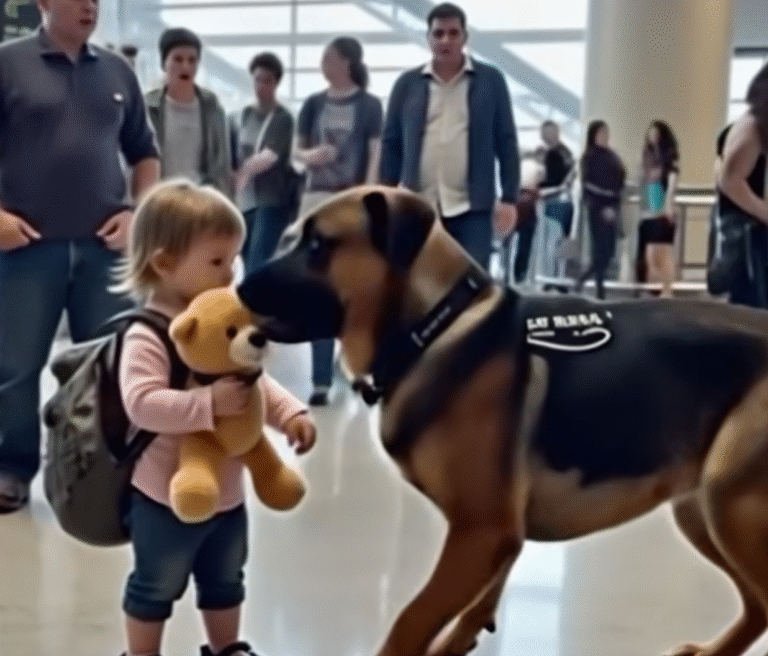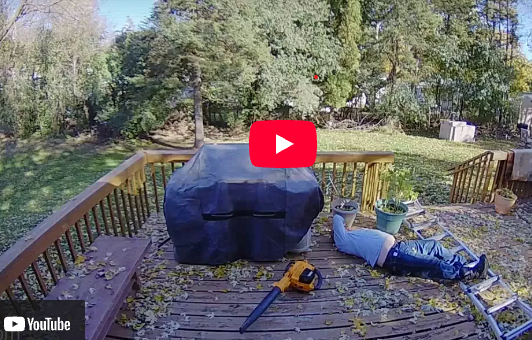

For decades, Whaly had been more than just an orca—he was a legend. Born in captivity but adored by millions, Whaly had become the face of the Oceanic Wonders Marine Park. Children grew up watching him leap, spin, and splash, while trainers spoke of his intelligence with reverence usually reserved for philosophers. But time, as it always does, took its toll.
At 39, Whaly passed peacefully in the early hours of a quiet Tuesday. The marine park announced a grand farewell—a public tribute to the whale who had given so much to so many.
Thousands gathered that Saturday, filling the bleachers overlooking the main tank. The air carried the scent of saltwater and popcorn, a bittersweet mixture of nostalgia and sorrow. Giant screens played a montage of Whaly’s life: his first jump, his playful antics with trainers, his quiet moments floating beneath the surface as if in deep thought.
But it was during the final tribute—when hearts were raw and silence fell over the crowd—that tragedy struck.
Stepping to the edge of the platform was Maya Delaney, the daughter of Whaly’s first and most beloved trainer, Ben Delaney, who had passed away the year prior. Maya, just 19, had grown up in the park’s back rooms, fed fish to Whaly as a toddler, and called him “brother” more than beast. Now, dressed in white and holding a single lily, she began her eulogy, voice trembling:
“Whaly wasn’t just an animal. He was my childhood, my comfort, my last link to Dad…”
As she knelt by the tank’s edge to place the lily in the water, something unexpected happened. Whaly’s body had been gently floated to the surface for one final goodbye, surrounded by flowers and solemn trainers. But perhaps something in the movement, the scent, or the sounds—something primal and unknowable—stirred a reaction.
Whaly twitched.
Whether it was a final involuntary muscle spasm, a reaction to the water temperature, or something else entirely—his tail erupted upward.
With terrifying force, a wave shot from the tank—and Maya, kneeling precariously, lost her balance. The crowd gasped as she was flung into the air, the lily spinning from her hand like a paper plane. She landed with a splash, vanishing under the surface.
Chaos erupted. Emergency staff rushed in. Trainers dove. Cameras kept rolling.
Moments later, Maya emerged—soaked, shaken, but alive—clinging to the side of the tank. A trainer helped her out, eyes wide with disbelief and grief still pouring from her.
The moment made headlines across the globe:
“Farewell Turns Frantic: Whale’s Final Movement Launches Trainer’s Daughter.”
“Whaly’s Last Goodbye or a Message from Beyond?”
Marine biologists were quick to dispel rumors—“It was a post-mortem reflex,” they said. “Nothing more.” But for the thousands who were there, and the millions who watched the viral footage, it felt different.
Some called it Whaly’s final trick. Others whispered that he reached for Maya in the only way he could, unwilling to let her go.
Maya, recovering later, offered only one statement to the press:
“I don’t think he meant to hurt me. I think… he was saying goodbye.”
And perhaps he was.
In the days that followed, people continued to gather at the park. Not for the shows, but to leave flowers by the tank, drawings of orcas, and hand-written letters addressed simply to “Whaly.”
The marine park announced no more shows. The tank would become a sanctuary—a place for reflection, not performance.
Whaly was gone. But those who loved him knew:
Some waves never stop rippling.




